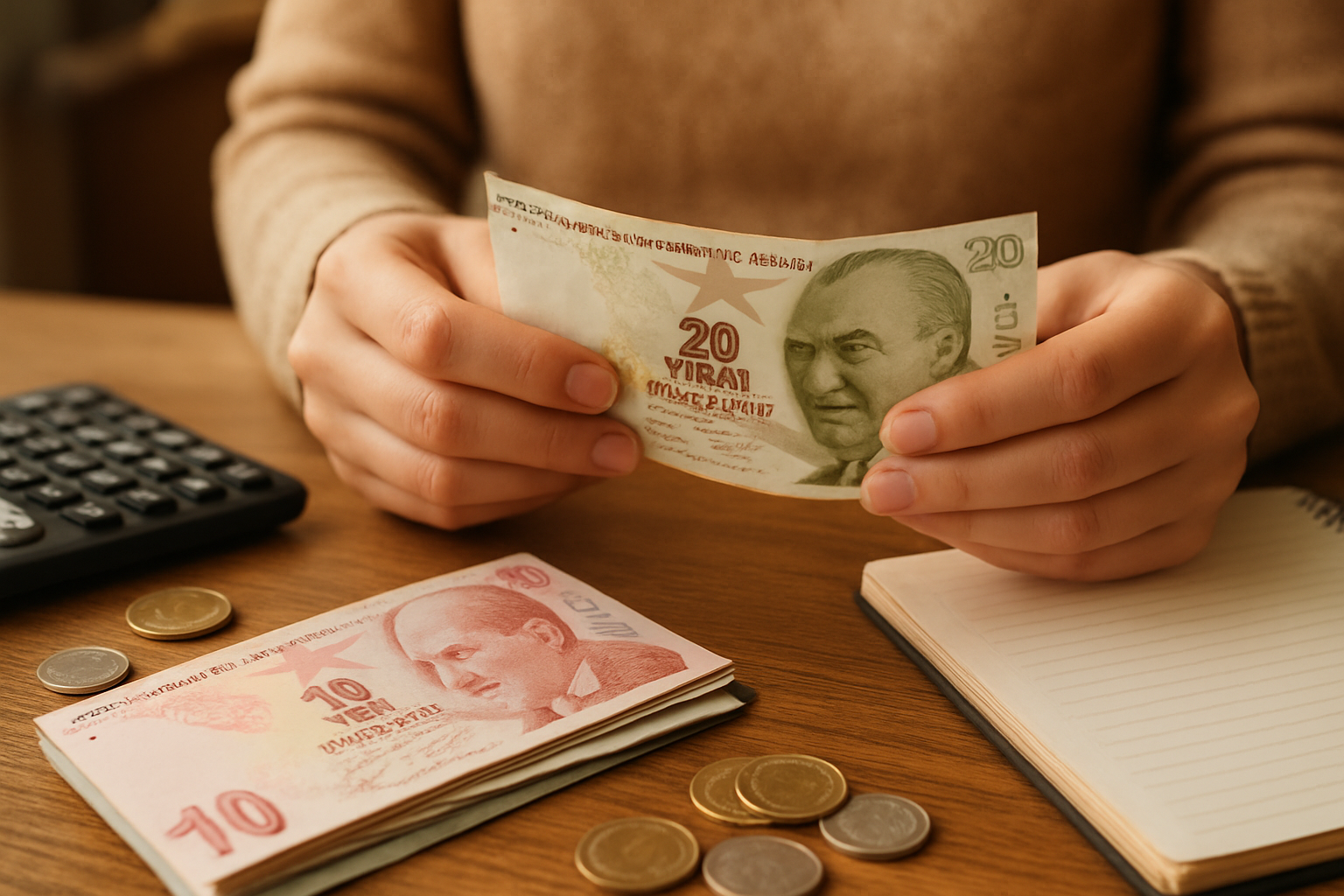Moving to Turkey brings many exciting opportunities, but daily money handling often creates stress for new expats. You face fluctuating exchange rates, different payment habits, and practical choices about cash versus cards. This guide breaks down Turkish currency and money handling into clear steps you can apply right away. Follow these practical tips to keep control of your finances, avoid fees, and feel confident when you pay or receive money.
1. Turkish Lira basics: notes, coins, and quick recognition
Turkish currency uses the Turkish lira (TRY). Learn the common notes and coins so you can identify value at a glance and avoid overpaying in markets or small shops.
Key denominations you should know:
- Banknotes: 5, 10, 20, 50, 100, 200 TRY
- Coins: 1, 5, 10, 25, 50 kuruş and 1 TRY
- People often use “kuruş” for small change; 100 kuruş = 1 TRY
Example: If a tram ticket costs 15 TRY, hand over a 20 TRY note and expect 5 TRY back. Carry a few coins and small notes for kiosks and static vendors.
2. Paying and getting paid: cards, cash, ATMs, and mobile payments
Most urban shops, restaurants, and supermarkets accept major cards and contactless payments. Rural markets and small vendors often prefer cash.
- ATMs: Withdraw local currency directly. Compare ATM fees from your bank and the local bank.
- Cards: Use chip-and-PIN or contactless where available. Inform your bank of travel to avoid blocks.
- Mobile wallets: Many Turks use mobile payment apps; you can register some international cards if your bank allows.
Practical example: You need 600 TRY for a weekend. If your bank charges a 2% foreign transaction fee and the ATM charges 5 TRY, multiply fees into your plan. Withdrawing a single larger amount often saves repeated fixed ATM charges.
3. Currency exchange and reading rates
Exchange rates change daily. Focus on the overall cost, not the headline rate. Watch for commissions, hidden fees, and poor mid-market spreads at airport exchange desks.
Use this simple calculation to compare offers:
Amount in your currency × exchange rate − commission = local currency you receive.
Practical example: Assume an offered rate converts 1 unit of your currency to 25 TRY and the desk charges 10 units commission. For a 100 unit exchange you get 100 × 25 − 10 × 25 = 2,250 TRY. Shop around and check online rates to judge fairness.
Benefit-driven tip: Use bank transfers or reputable apps for large sums. They usually give better rates than airport booths and reduce the risk of carrying cash.
4. Money-handling habits that save time and money
Adopt simple habits to reduce fees, speed up transactions, and avoid confusion in markets.
- Carry exact change for quick transactions in taxis and markets.
- Withdraw once or twice a week to minimize ATM fees and budget more clearly.
- Use local bank accounts for salary and recurring local payments to avoid repeated foreign transaction charges.
- Keep an emergency stash of cash in a separate place from your wallet.
Practical example: You bargain for a rug at a market. The seller quotes 3,000 TRY. Offer 2,400 TRY in cash and explain you’ll pay now. Cash often secures a lower price and you save on card fees.
Benefit-driven framing: These habits free you from surprise fees, help you manage monthly budgets, and let you act quickly when a cash discount appears.
5. Safety, fraud prevention, and legal considerations
Protect your money and your personal data while living in Turkey. Theft and card skimming occur, but you can reduce risk with a few practical steps.
- Use ATMs located inside banks or busy shops; avoid isolated machines at night.
- Cover the keypad when you type your PIN and check for card readers that look tampered.
- Keep copies of important documents and register your address with your bank to receive statements securely.
- Declare any income you earn locally and consult a local accountant for tax rules. Turkey enforces tax reporting; staying compliant avoids fines.
Practical example: You sell items online to locals and accept bank transfers. Register a local bank account and ask a tax adviser how to report income. Complying early avoids problems and keeps your financial reputation intact.
Quick checklist for smooth money handling in Turkey
- Learn common notes and coins before you arrive.
- Compare ATM and exchange fees; withdraw smartly.
- Use cash for markets and cards in cities to gain discounts and convenience.
- Protect PINs and monitor accounts daily via mobile banking.
- Seek local tax advice for income and residency-related obligations.
Understanding Turkish currency and money handling takes a little practice, but you can master it within a few weeks. Apply these tips, experiment with payment methods, and keep a simple budget habit. You’ll reduce fees, avoid common mistakes, and enjoy financial confidence as an expat in Turkey.

